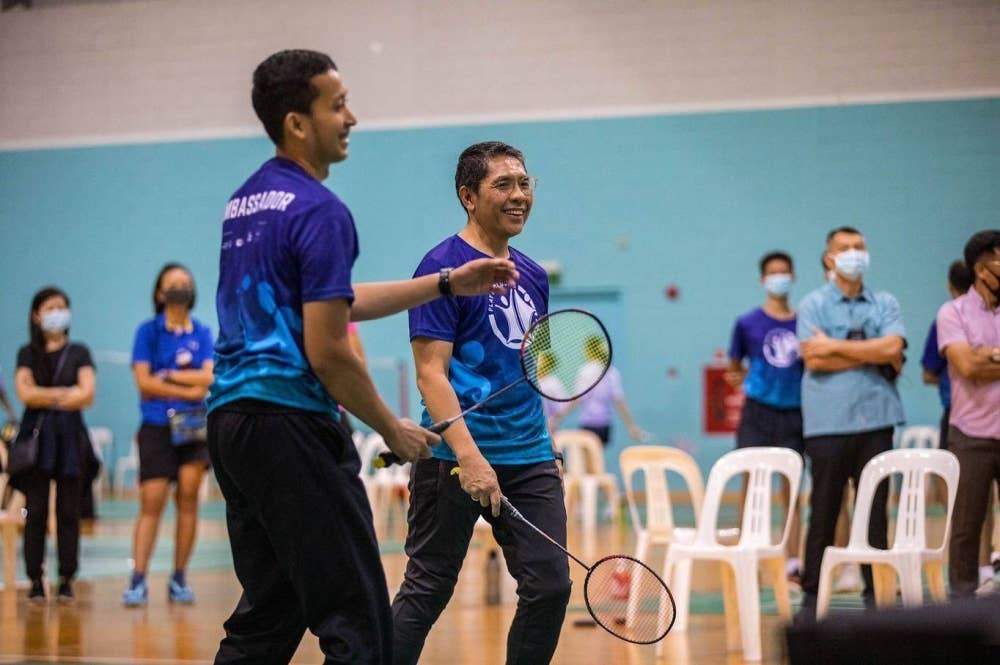SHAH ALAM - Singapore is looking to reduce the focus on academic results by reducing exams, as part of its Learn for Life movement, said Singapore's Second Minister for Education Dr Maliki Osman.
He said the Education Ministry is working with schools, parents, and the community to nurture the joy of learning in young students, help them develop motivation, and embrace broader definitions of success.
"Our teachers and schools put in a lot of effort to celebrate the diversity of abilities and talent, guide students to discover their strengths and interests, and embrace broader definitions of success.
"When students leave school, we hope that they remain curious, and are equipped with the right skills and mindset to keep learning through life," he told Sinar.
However, the shift in societal mindset requires significant effort and partnership to bring everyone on board, adding that the goal is to equip students with the right skills and mindset to keep learning through life and remain curious.
"Similarly, it is important for Singaporeans to remain outward-looking, and be aware of international developments," he said.
As a small country, he said Singapore faces a challenge to maintain its relevance in an increasingly complex world, dealing with intense superpower rivalry, global economic disruption, and climate change.
"We have to navigate a period of increasingly intense superpower rivalry, global economic disruption, and looming climate change, while dealing with a more fragmented, turbulent world," he added.
Maliki, the Second Foreign Affairs Minister also said they have to find new ways to create opportunities for Singaporeans overseas while supporting nationals abroad.
To advance Singapore's interest in various countries, including Malaysia, the Foreign Affairs Ministry is also focusing on strengthening cooperation and maintaining open channels of communication.
"Education is an area where Singapore and Malaysia have worked well together, and it is vital to boost people-to-people ties among the youth to future-proof their relations," he said.
There are several tie-ups between the institutions such as the Education Ministry Games for educators including Educational Overseas Immersion Programme for Malay Language as an Elective Programme and Study Missions and Summer Programmes for students to deepen their appreciation and awareness on the diverse socio-cultural environments of Singapore and Southeast Asia.
In January, Singapore and Malaysia kicked off the inaugural E-Immersion Programme for Malay Language teachers in Perak to exchange best practices on the teaching of the Malay language, literature, and culture, said Maliki.
"As President Halimah Yacob said during her recent State Visit to Malaysia, there is more that can be done in terms of education co-operation, and both countries will find new ideas and opportunities for collaboration," he added.
He said the Education Ministry is working with schools, parents, and the community to nurture the joy of learning in young students, help them develop motivation, and embrace broader definitions of success.
"Our teachers and schools put in a lot of effort to celebrate the diversity of abilities and talent, guide students to discover their strengths and interests, and embrace broader definitions of success.
"When students leave school, we hope that they remain curious, and are equipped with the right skills and mindset to keep learning through life," he told Sinar.
However, the shift in societal mindset requires significant effort and partnership to bring everyone on board, adding that the goal is to equip students with the right skills and mindset to keep learning through life and remain curious.
"Similarly, it is important for Singaporeans to remain outward-looking, and be aware of international developments," he said.
As a small country, he said Singapore faces a challenge to maintain its relevance in an increasingly complex world, dealing with intense superpower rivalry, global economic disruption, and climate change.
"We have to navigate a period of increasingly intense superpower rivalry, global economic disruption, and looming climate change, while dealing with a more fragmented, turbulent world," he added.
Maliki, the Second Foreign Affairs Minister also said they have to find new ways to create opportunities for Singaporeans overseas while supporting nationals abroad.
To advance Singapore's interest in various countries, including Malaysia, the Foreign Affairs Ministry is also focusing on strengthening cooperation and maintaining open channels of communication.
"Education is an area where Singapore and Malaysia have worked well together, and it is vital to boost people-to-people ties among the youth to future-proof their relations," he said.
There are several tie-ups between the institutions such as the Education Ministry Games for educators including Educational Overseas Immersion Programme for Malay Language as an Elective Programme and Study Missions and Summer Programmes for students to deepen their appreciation and awareness on the diverse socio-cultural environments of Singapore and Southeast Asia.
In January, Singapore and Malaysia kicked off the inaugural E-Immersion Programme for Malay Language teachers in Perak to exchange best practices on the teaching of the Malay language, literature, and culture, said Maliki.
"As President Halimah Yacob said during her recent State Visit to Malaysia, there is more that can be done in terms of education co-operation, and both countries will find new ideas and opportunities for collaboration," he added.





